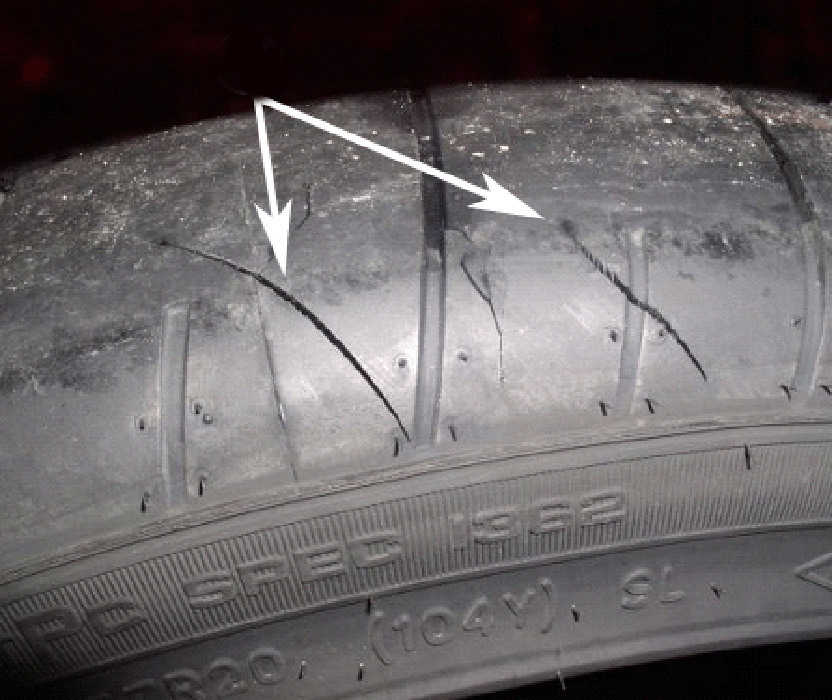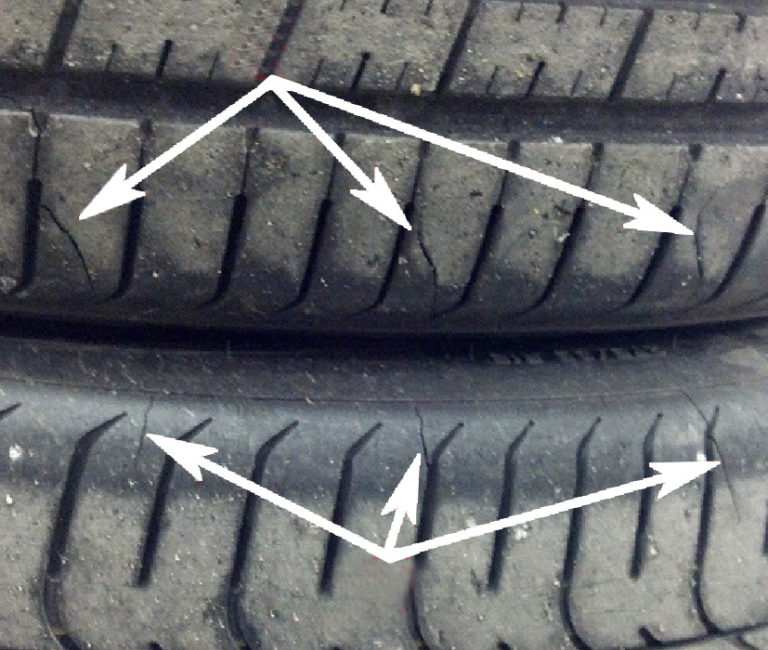2012–2017 Buick Regal GS, 2014–2015 Cadillac CTS V-Sport, 2016–2019 ATS-V and CTS-V, 2012–2015 Chevrolet Camaro ZL1, 2013–2015 Camaro SS with RPO 1LE, 2014–2015 Camaro Z28, 2016–2021 Camaro SS ZL1 and 1LE (RPO A1X, A1Y and A1Z), 2014–2017 Chevrolet SS, 2014–2019 Corvette Z06, Grand Sport, ZR1 and 2020 Corvette with Z51 package
Should you encounter customers with one of the above vehicles equipped with high-performance, summer-only tires, it’s important to alert them to certain performance-related concerns that can occur during cold weather.
First, the tires will exhibit reduced traction at temperatures below approximately 40°F. Consequently, GM recommends the use of winter tires when driving in such temperatures. Second, it’s important to avoid driving, moving or test-driving vehicles with these tires when the mercury dips below 20°F, as it could cause damage to the rubber.
Surface cracks (as shown below) develop from flexing of the rubber at cold conditions, such as driving on the tires.


And, while the surface cracks are cosmetic and will not result in the loss of air, the special tread and compounds used in the rubber will lead to decreased performance in cold climates and may result in tire damage. In addition, driving with high-performance summer tires on snow, ice or cold road surfaces may cause a loss of control. Summer tires that have been used in cold climates and exhibit tread cracks should be discarded.
TIRE STORAGE
When not in use, high-performance summer tires should be stored indoors at temperatures above 20°F. If the tires have been subjected to temperatures of 20°F or less, let them warm up in a heated space to at least 40°F for 24 hours or more before being installed on a vehicle. Note, however, that the tires should not be placed directly near heating devices or have heated air blown on them.
TIP: Always inspect the tires after storage and inflate them only after they’ve warmed to a temperature above 40°F.
For additional information on high-performance summer tires, refer to Service Information Bulletin #13-03-10-001G.

